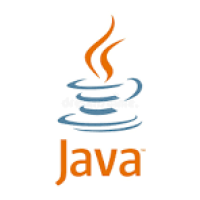Java is an object-orientated programming language utilized in allotted environments on the internet. It is a high-level language which is simple to study and understand. With it, programmers can “write once, run everywhere” (WORA), meaning the compiled Java code will run on all Java-compatible structures without recompilation. If you are looking for Java course in Thampanoor Thiruvanathapuram, we are there for you.
Our JAVA training course has a curriculum carefully crafted by our industry specialists, allowing freshers to hone their JAVA skills and make the best use of this immensely famous programming language’s object-orientated capabilities. Building robust JAVA-based applications and platform-independent GUIs can now be less difficult with our Java course in Kerala at an affordable price.
Benefits of studying Java
Learning Java course offers numerous benefits for individuals interested in programming and software development:
Versatility: Java course is a flexible programming language that can be used for various applications, from constructing net and corporation applications to developing Android cellular apps and jogging embedded structures.
Platform Independence: Java is platform-independent, meaning Java packages can run on any working machine with Java Virtual Machine (JVM) installed.
Robust and Reliable: Java’s strong typing gadget and widespread mistakes-checking mechanisms help ensure dependable code.
Who can learn Java?
Quick learning curves exist for Java courses; everyone may download the JRE and run a Java programme. Softzone Thampanoor Thiruvananthapuram is a leading Java training institute and mentoring platform backed by NDimensionZ that provides advanced-level software training such as Big Data Training, RPA, Digital Marketing, Data Science Training, Python Training, Machine Learning Training, and more.
Job Outcomes
Java is an appreciably used programming language with many challenge possibilities at some stage in numerous sectors, Such as Java Developer, Full-Stack Java Developer, Java Web Developer, Java Consultant, and many more.
Course Title: Java Programming
Course Description:
This course provides an in-depth introduction to Java programming, covering basic to advanced topics. Students will learn to develop robust and efficient Java applications, understand object-oriented programming principles, and implement data structures and algorithms.
Course Objectives:
– Understand the fundamentals of Java programming language.
– Master object-oriented programming concepts.
– Develop applications using Java’s standard libraries.
– Implement data structures and algorithms.
– Learn about GUI programming and event-driven development.
– Understand multithreading and concurrency.
Prerequisites:
– Basic understanding of programming concepts.
– Familiarity with any programming language (optional).
Course Outline:
Week 1: Introduction to Java
– Overview of Java and its features
– Setting up the development environment (JDK, IDE)
– Writing and running a simple Java program
– Java syntax and basic constructs (variables, data types, operators)
– Input and output in Java
Week 2: Control Structures
– Conditional statements (if, else, switch)
– Looping structures (for, while, do-while)
– Break and continue statements
– Introduction to debugging
Week 3: Object-Oriented Programming (OOP) Basics
– Classes and objects
– Methods and constructors
– Access modifiers and encapsulation
– Static members and methods
Week 4: Advanced OOP Concepts
– Inheritance and polymorphism
– Abstract classes and interfaces
– Method overriding and overloading
– The `Object` class and its methods
Week 5: Arrays and Collections
– One-dimensional and multi-dimensional arrays
– Array manipulation
– Introduction to Java Collections Framework (List, Set, Map)
– Iterators and enhanced for loop
Week 6: Exception Handling
– Introduction to exceptions
– Try, catch, finally blocks
– Creating custom exceptions
– Best practices for exception handling
Week 7: File I/O
– File and directory operations
– Reading and writing files using `FileReader`, `FileWriter`, `BufferedReader`, and `BufferedWriter`
– Serialization and deserialization
Week 8: Java Standard Libraries
– Utility classes (`String`, `StringBuilder`, `Math`, `Wrapper` classes)
– Date and time API
– Regular expressions
– Java annotations
Week 9: GUI Programming with Swing
– Introduction to Swing and GUI components
– Creating windows and dialogs
– Event handling and listeners
– Layout managers
Week 10: Multithreading and Concurrency
– Introduction to threads and multithreading
– Creating and managing threads
– Synchronization and thread safety
– Concurrent collections
Week 11: Networking
– Introduction to networking in Java
– Sockets and client-server communication
– URL and HTTP communication
– Developing simple networked applications
Week 12: Data Structures and Algorithms
– Basic data structures (linked lists, stacks, queues, trees)
– Searching and sorting algorithms
– Recursion and backtracking
– Big-O notation and algorithm analysis
Week 13: Database Connectivity with JDBC
– Introduction to JDBC
– Connecting to a database
– Executing SQL queries
– Handling transactions
Week 14: Final Project Development and Review
– Planning and designing a Java application
– Implementing the application using Java
– Testing and debugging the application
– Final project presentations
– Course wrap-up and feedback
Assessment and Evaluation:
– Weekly quizzes and assignments
– Mid-term project
– Final project presentation
– Participation and attendance
This syllabus provides a structured approach to learning Java programming, ensuring that students gain both theoretical knowledge and practical skills necessary for developing Java applications.







